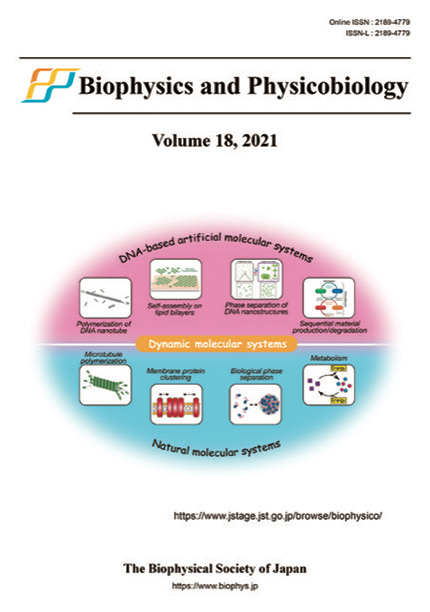- HOME
- Story of the Cover
Story of the Cover
DNA nanotechnology provides an avenue for the construction of programmable dynamic molecular systems

(Yusuke Sato, Yuki Suzuki, Biophysics and Physicobiology 18, 116-126 (2021), DOI: 10.2142/biophysico.bppb-v18.013)
Self-assembled biomolecular structures in living cells and their dynamics underlie various cellular events, as cell shaping, signal transduction, gene expression, and cellular metabolism. Designing molecular interactions that allows dynamic association/dissociation would be an essential step for the development of artificial molecular systems. DNA nanotechnology provides a powerful means to design and construct bio-inspired self-assembly systems owing to the base-specific interaction. The construction of DNA-based artificial molecular systems will enable us to gain insights into how autonomy and adaptability of living systems can be realized.
 Biophysics and Physicobiology
Biophysics and Physicobiology